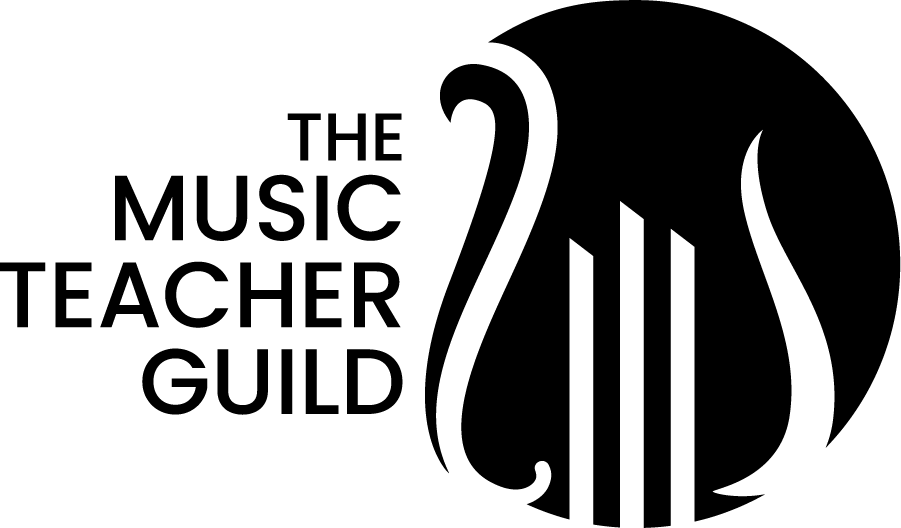Top Career Development Resources for Music Teachers
Introduction
As a music teacher, your passion for fostering musical talent doesn’t end in the classroom—it extends into your own professional growth. The world of music education is constantly evolving, and staying at the forefront of these changes is essential to long-term success. Whether you're looking to sharpen your teaching skills, open doors to new opportunities, or simply stay inspired, having the right career development resources at your fingertips can make all the difference. In this post, we’ll explore the top career development resources for music teachers, ensuring you can continue to grow while guiding the next generation of musicians.
Why Career Development Matters for Music Teachers
Music education is more than a job—it’s a career that thrives on continuous learning. The role of a music teacher has expanded over the years, requiring not only mastery in musical theory and practice but also technological literacy, pedagogical strategies, and leadership skills. By investing in your career development, you can enhance your ability to impact students' lives, stay current with new teaching methods, and even increase your job satisfaction.
Staying updated with industry trends ensures that you’re not only providing your students with the best education but also positioning yourself competitively within the field. Career development opens doors to new opportunities, helps you stay connected with a network of like-minded educators, and provides valuable skills that keep your teaching relevant and exciting.
Top Career Development Resources for Music Teachers
Professional Organizations
One of the best ways to stay connected and informed is by joining professional organizations. These groups offer access to valuable resources, networking opportunities, and professional development programs. Two highly respected organizations for music teachers include:NAfME (National Association for Music Education): Offers members a wealth of resources, including professional development workshops, teaching materials, and advocacy tools to elevate music education nationwide.
MTNA (Music Teachers National Association): Focuses on supporting music teachers with professional certification, national competitions, and conferences.
Membership in these organizations can open doors to opportunities that wouldn’t be available otherwise and keeps you updated on the latest developments in the field.
Online Courses and Certifications
With the rise of digital learning, there are more ways than ever to gain new certifications and expand your expertise as a music educator. Here are some excellent platforms offering courses tailored to music teachers:Berklee Online: A trusted source for music education, offering certificates in areas such as music theory, conducting, and even music technology.
Coursera: Provides music-related courses from world-class institutions. Topics range from beginner’s music theory to more advanced teaching techniques.
Udemy and Teachable: Offer self-paced music education courses on everything from classroom management to digital music production. These courses allow teachers to pursue additional certifications and specialized knowledge at their own pace, often making it easier to balance teaching responsibilities and personal growth.
Networking Events and Conferences
Attending conferences allows you to engage with fellow educators, share ideas, and learn from industry experts. Some of the best networking events for music teachers include:Midwest Clinic (Chicago): An international band and orchestra conference that offers clinics, performances, and exhibits to inspire educators.
NAMM (National Association of Music Merchants) Show: Not only for merchants, but a fantastic resource for music teachers to explore new educational technology and attend educational workshops.
NAfME Conferences: These events provide targeted professional development and a chance to connect with other educators passionate about music. Attending conferences is not only a chance to gain new knowledge, but it can also revitalize your passion for teaching by surrounding yourself with others who share your goals.
Mentorship Programs
Finding a mentor can be an invaluable part of your career development. Mentorship programs, such as those offered by music teacher organizations, help you connect with experienced educators who can provide guidance and support. Some options include:MTNA Mentorship Program: Connects new teachers with seasoned professionals who offer advice on everything from curriculum planning to managing work-life balance.
School or district-based mentorship: Many schools offer mentoring programs for teachers at all stages of their careers, helping them navigate challenges and grow as educators. Having a mentor can accelerate your career development by offering personalized advice and a supportive relationship as you grow professionally.
Educational Podcasts and Blogs
Continuous learning doesn’t have to feel like work! Podcasts and blogs offer a convenient way to stay informed and inspired on your own time. Here are a few recommended podcasts and blogs:Music Teacher Development Podcast: This podcast covers topics ranging from classroom management to innovative teaching methods.
The Anacrusic Podcast: Hosted by Anne Mileski, it’s packed with tips for both new and experienced music teachers looking to grow their teaching toolbox.
MusicTeachersHelper.com Blog: Offers articles on various topics from managing student recitals to organizing your teaching schedule.
By consuming content from educational podcasts and blogs, you can learn from other experts and keep your ideas fresh, whether you’re commuting, exercising, or taking a break.
How to Choose the Right Resource for You
When it comes to career development, the best resource depends on where you are in your teaching journey. Early-career teachers might prioritize mentorship and certification programs, while seasoned educators might benefit most from networking and attending conferences. Additionally, consider your budget and time availability. Many online courses offer flexibility in both cost and scheduling, allowing you to pace yourself and invest according to your immediate needs.
Conclusion
As a music teacher, your journey of learning and growth never truly ends—and that’s part of the magic. By utilizing career development resources like professional organizations, online courses, mentorship programs, and educational podcasts, you can continuously expand your horizons and become an even more effective educator. Whether you’re looking to sharpen your skills, explore new teaching methods, or simply connect with others in the industry, these resources will support your growth and success. Keep learning, keep growing, and watch your career soar to new heights!

